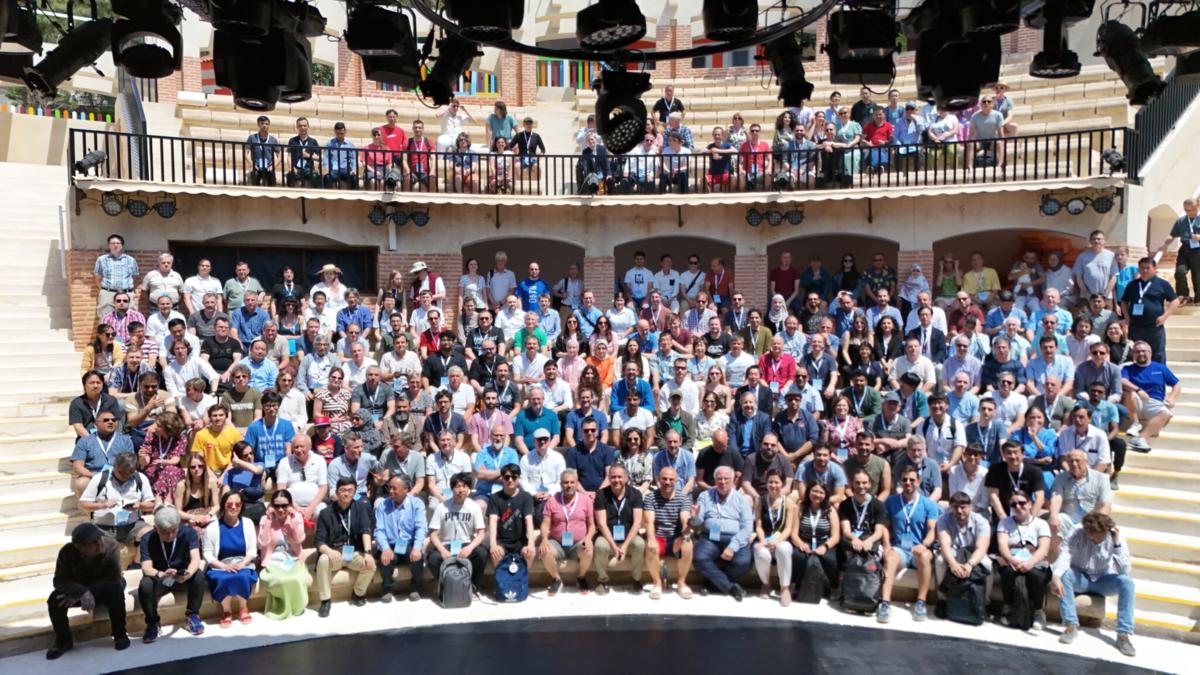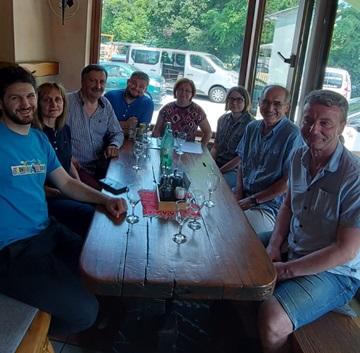Active HrZZ project MOMENT (2023-2027): Molecular magnetism in advanced solid and soft materials

Collaborators:
Ruđer Bošković Institute
California State University Northridge, USA
Ss. Cyril and Methodius University in Skopje, North Macedonia
University of Zagreb, Faculty of science, Department of Chemistry
Principal investigator
Abstract
Molecular magnets represent an ideal playground for physiciststo study classical and quantum magnetism due to the intrinsic quantum properties of electron spin and the possibility of influencing it through chemical synthesis. Namely, physical properties such as magnetic anisotropy, spin interactions, phase transitions, spin-crossover, relaxation times, diffusivities, and molecular dynamics could be modified by using appropriate ligands, coordination ions, diluting spin centers, changing solvent polarity, and introducing reinforcing agents to polymer matrices. Therefore, the essential step in molecular magnetism, between chemical design and spin control in devices, lies in understanding spin properties related to structural and dynamical properties. Due to the continuous search for new multifunctional materials, many different solid and soft molecular magnetic compounds have been synthesized. In this project, we will investigate selected advanced materials concerning their potential application for storage, spintronics, biology, charge transport, and “green” fillers in polymers, as w ell as because of their unconventional magnetic properties. Our focus will be on transition metal compounds, MOFs, paramagnetic molecules in liquids, and polymer-zeolite composites. The primary experimental technique w ill be electron spin resonance (ESR) spectroscopy as an ideal tool for obtaining insights into the local properties of spin centers and a microscopic picture of interactions. Besides standard X-band CW spectroscopy, we will use advanced ESR techniques such as pulse, ENDOR, and multifrequency high-field ESR. These results w ill be supported by those obtained by X-ray diffraction, magnetometry, DSC, and SEM. The experimental results w ill be interpreted based on the spin-Hamiltonian approach, physical models, and DFT computations. Beyond the fields of molecular magnetism, the project’s results may also influence the area of coordination chemistry and quantum technologies.
Web page https://www.irb.hr/moment
X (Twitter) account @hrzz_moment
Associated publications https://www.croris.hr/projekti/projekt/9416?lang=en
NEWS
--------------------2024--------------------
-Kick-off-meeting 25.01.2024. at RBI
-HF-ESR experiments at Leibniz IFW Dresden (21.02.-01.03. 2024.)
-Miroslav Peric and Dalibor Merunka published article in Journal of Molecular Liquids
-Dijana Žilić published article in Dalton Transaction
-Working lunch of MOMENT members, including prof. Peric from California State University, on 6.6.2024.
-Boris Rakvin and Jurica Jurec published article in Applied Magnetic Resonance
-Lucija Vujević participated with poster at XIIth Conference of the European Federation of EPR groups
-Darko Vušak, Jurica Jurec and Dijana Žilić published article in Molecules
--------------------2025--------------------
-On 08.01.2025. Lucija Vujević defended her PhD thesis "The study of metal-organic frameworks by electron paramagnetic resonance spectroscopy".







